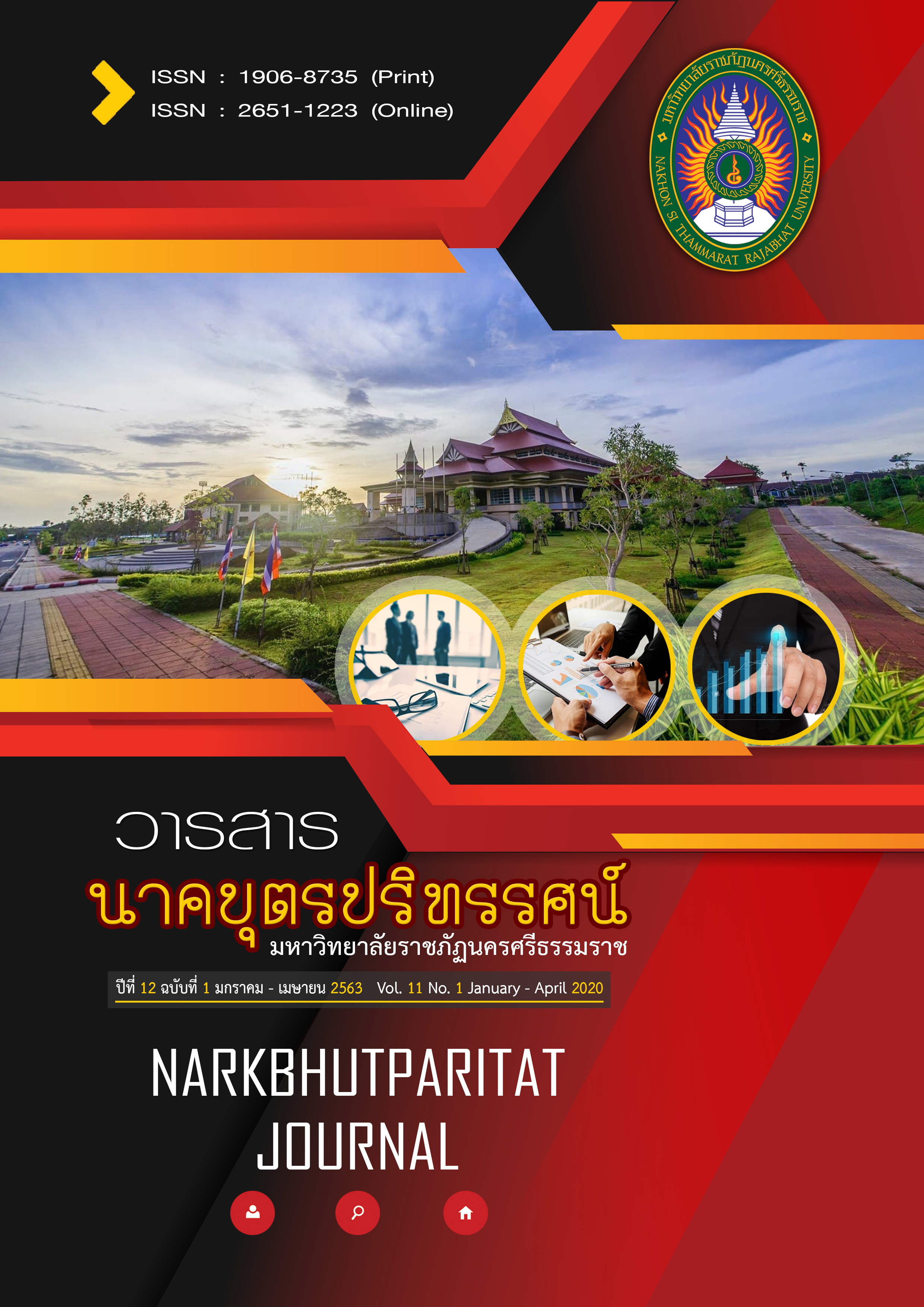The Results of the Problem Solving of Nakhon Si Thammarat Rajabhat University’s Undergraduate Students After Study with Problem Based Learning In Design and Development of Applications for Mobile Devices Subject
Main Article Content
Abstract
The purposes of the research were:1) Study the knowledge about Design and development of applications for mobile devices 2) Study the problem solving ability of students and 3) Study the attitude of students towards learning management by problems based learning . The Research samples were 30 students studied in Design and development of applications for mobile sevices subject of academic year 2018 by using Purposive Sampling method. The statistics used in the research were mean and standard deviation.
The result of the research were as follows: 1) The students by using problem-based learning have knowledge higher than criterion. 2) Problem solving ability from total students has an average of 4.14 at an excellent level. and 3) The attitudes of students by using problem based learning was good level by the highest level of self development of learners, second was the roles of teacher and the last was the learning process by problem based learning.
Article Details
References
Chiangkul, W. ( 2007). Thai educational conditions 2006/2007 “Systematic problem solving and educational reform”. Bangkok: The Secretariat of the Council of Education. (in Thai)
Eastern Asia University Research Office. (2010). Synthesize problem based learning procedures. Patumthani: Eastern Asia University. (in Thai)
Jaithiang A. (2010). Teaching principles. Bangkok: Odeanstore. (in Thai)
Makmee, P. (2011). Problem-based Learning. EAU Heritage Journal: social science and humanities, 5(1), 7-14. (in Thai)
Nanthachai N. and Lichanporn I. (2011). The study process by problem-based learning method in food science and technology. Pathum Thani: Rajamangala University of Technology Thanyaburi. (in Thai).
Office of the National Economic and Social Development Board. (2019). The 12th edition of the public plan Innovation is the heart of development. Bangkok: Office of the National Economic and Social Development Board. (in Thai)
Panit W. (2013). Learning development toward 21st Century. Bangkok: Sor Chareon Printing. (in Thai)
Suwannoi, P. (2015). Problem-based Learning. Documentation for the development of Teaching and learning projects. Khonkaen: KhonKaen university. (in Thai)
Tayyeb R. (2013). Effectiveness of problem-based learning as an instructional tool for acquisition of content knowledge and promotion of critical thinking among medical students. JCPSP-J Coll Physici. 23(1), 42-6.
The Secretariat of the Council of Education Ministry of Education. (2009). The study of knowledge about Thai characteristics desirable: ability to face and overcome obstacles. Bangkok: Ministry of Education. (in Thai)
Tork HMM and Shahin ESM. (2011). The effectiveness of Problem Based Learning (PBL) in nursing education: cross-cultural student’s perspective. Journal of American Science. 7(11), 516-21.
Yuan H, Williams BA and Fan L. (2008). A systematic review of selected evidence on Developing nursing students’ critical thinking through problem-based learning. Nurse Educ Today. (28), 657-63


